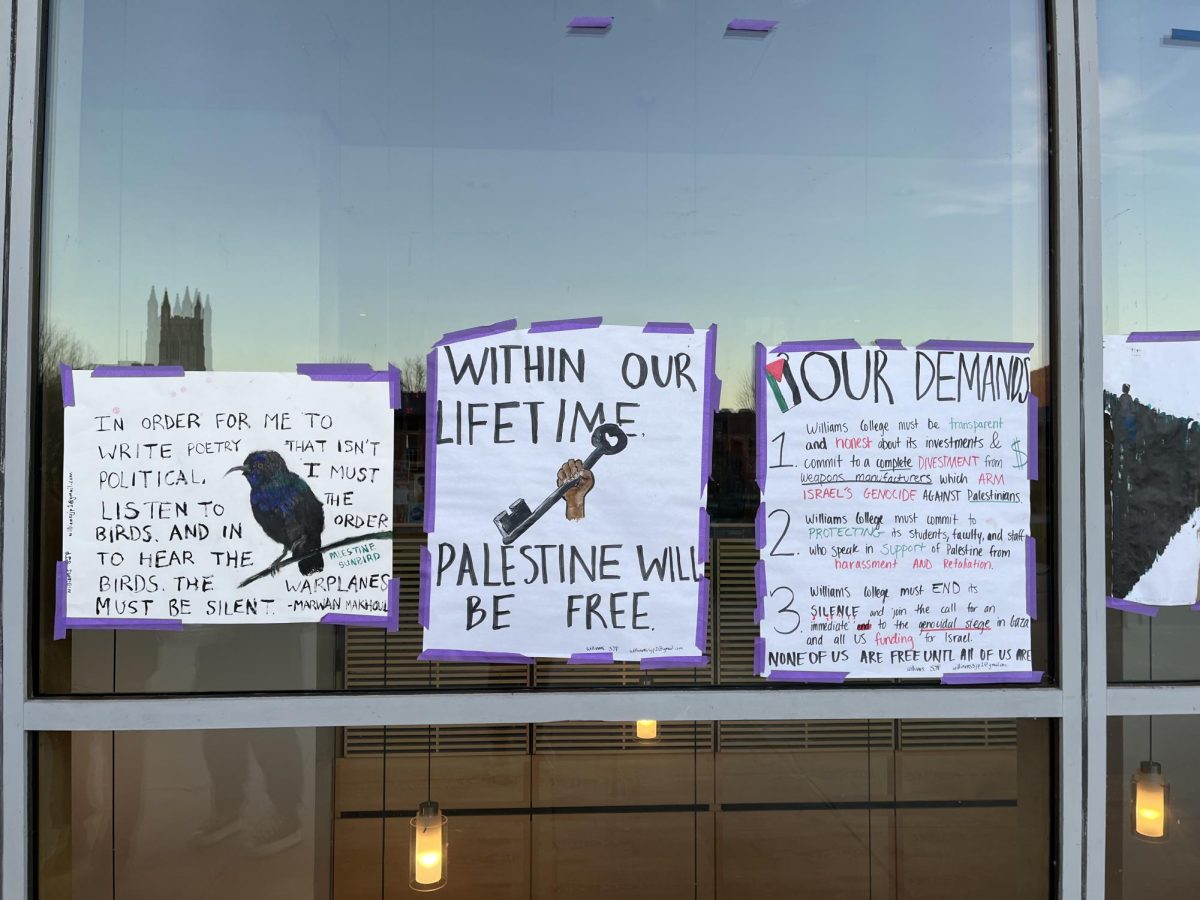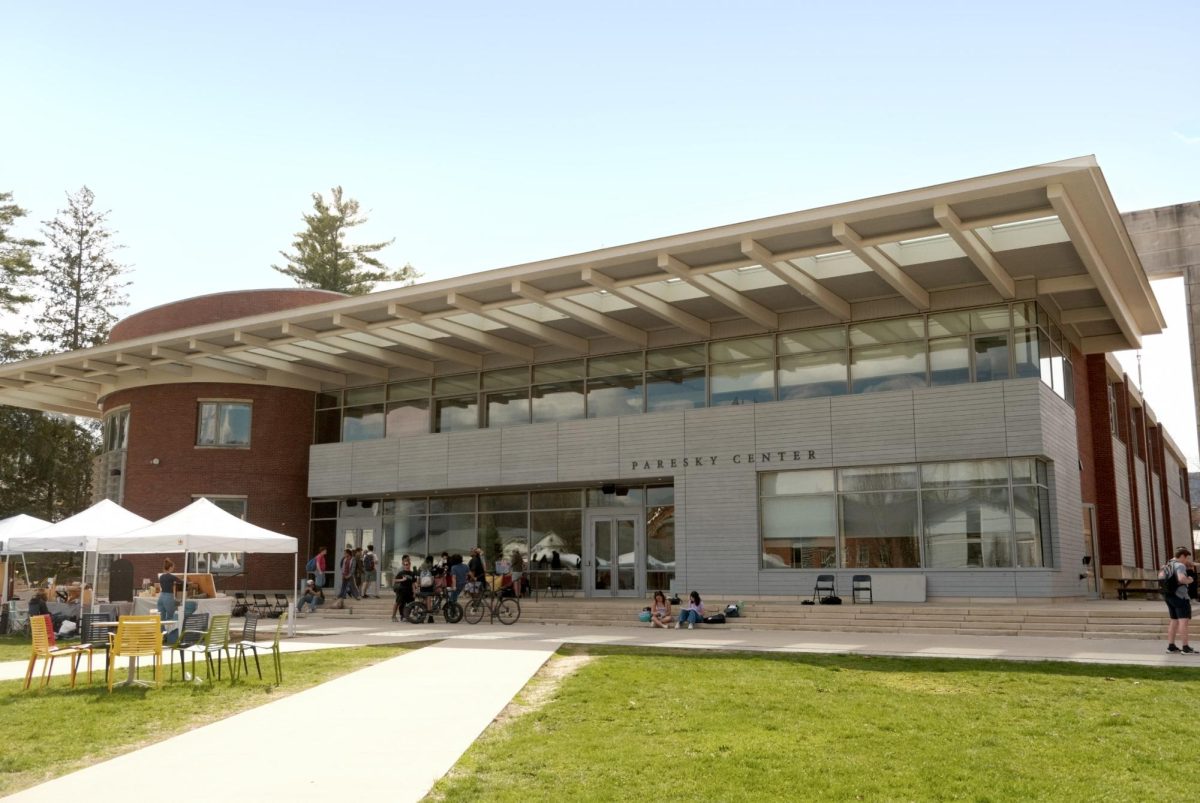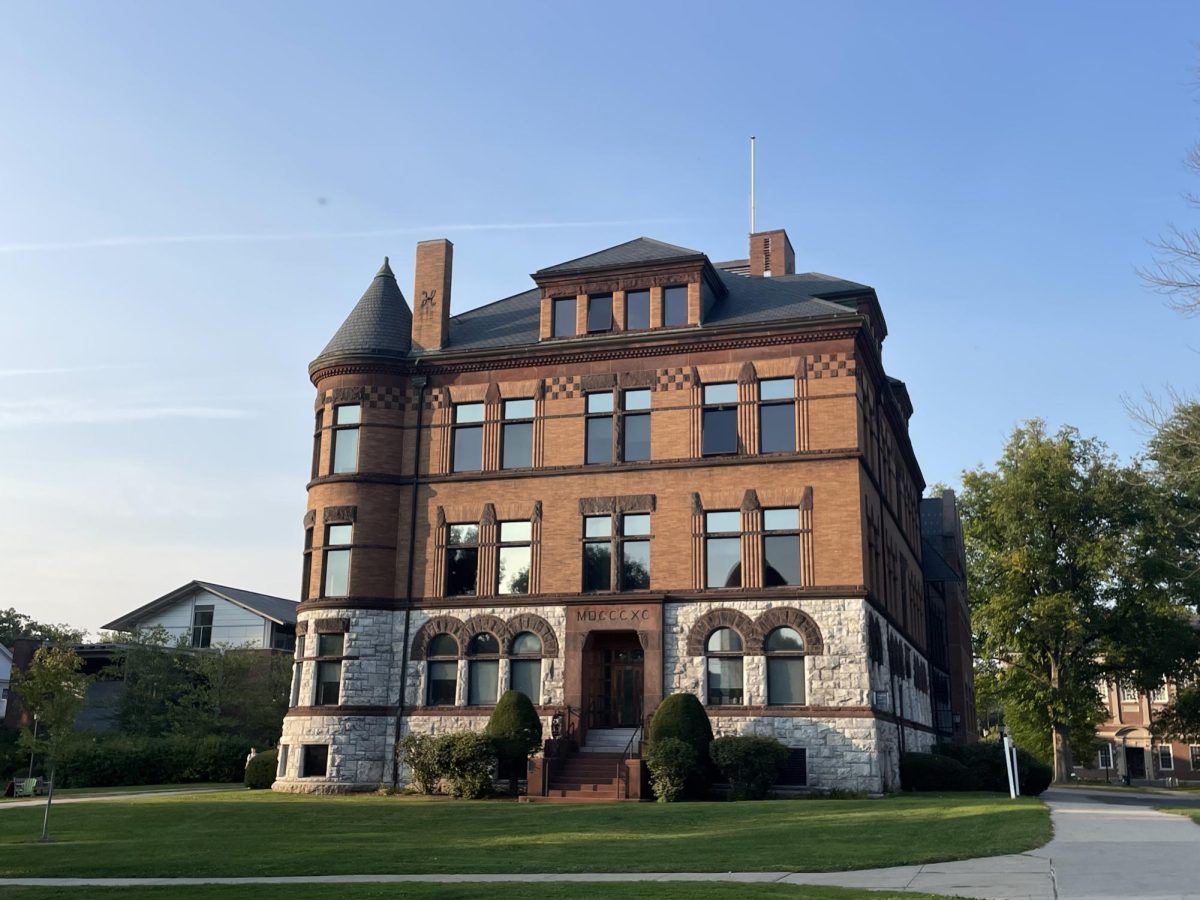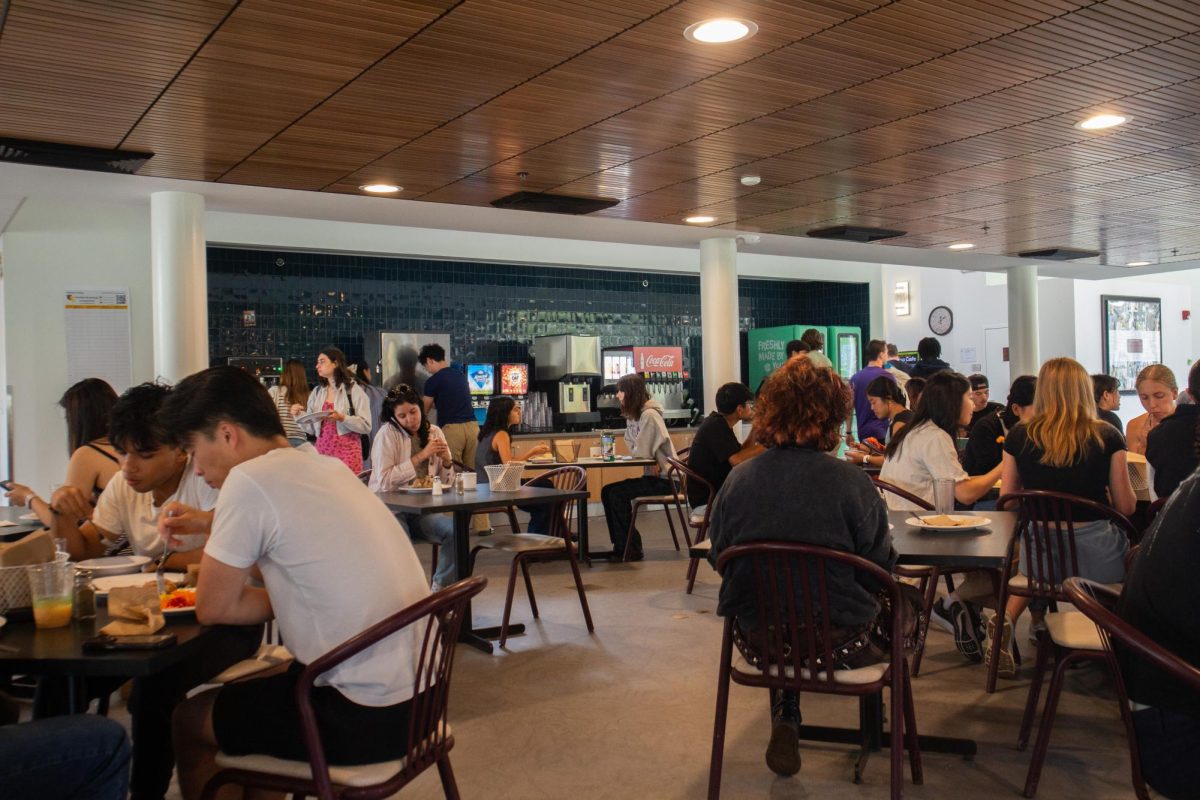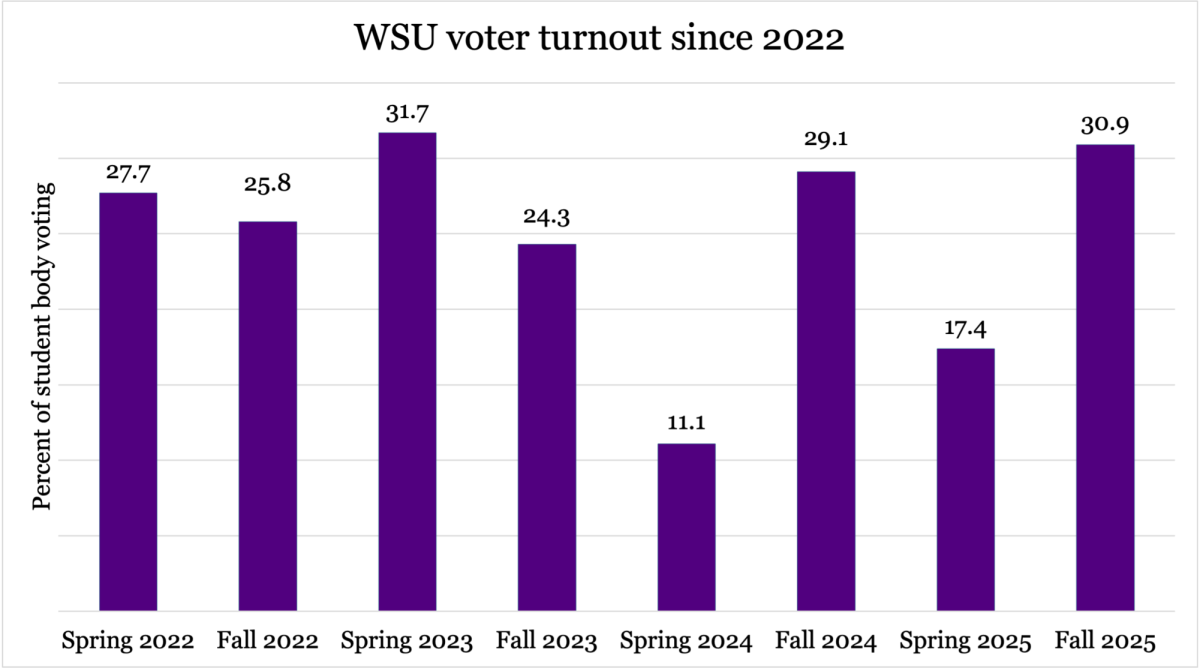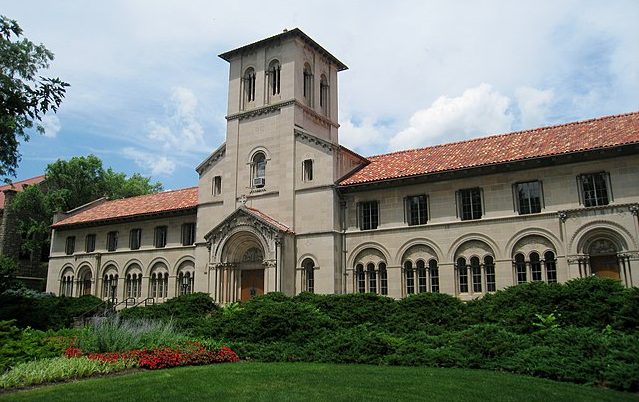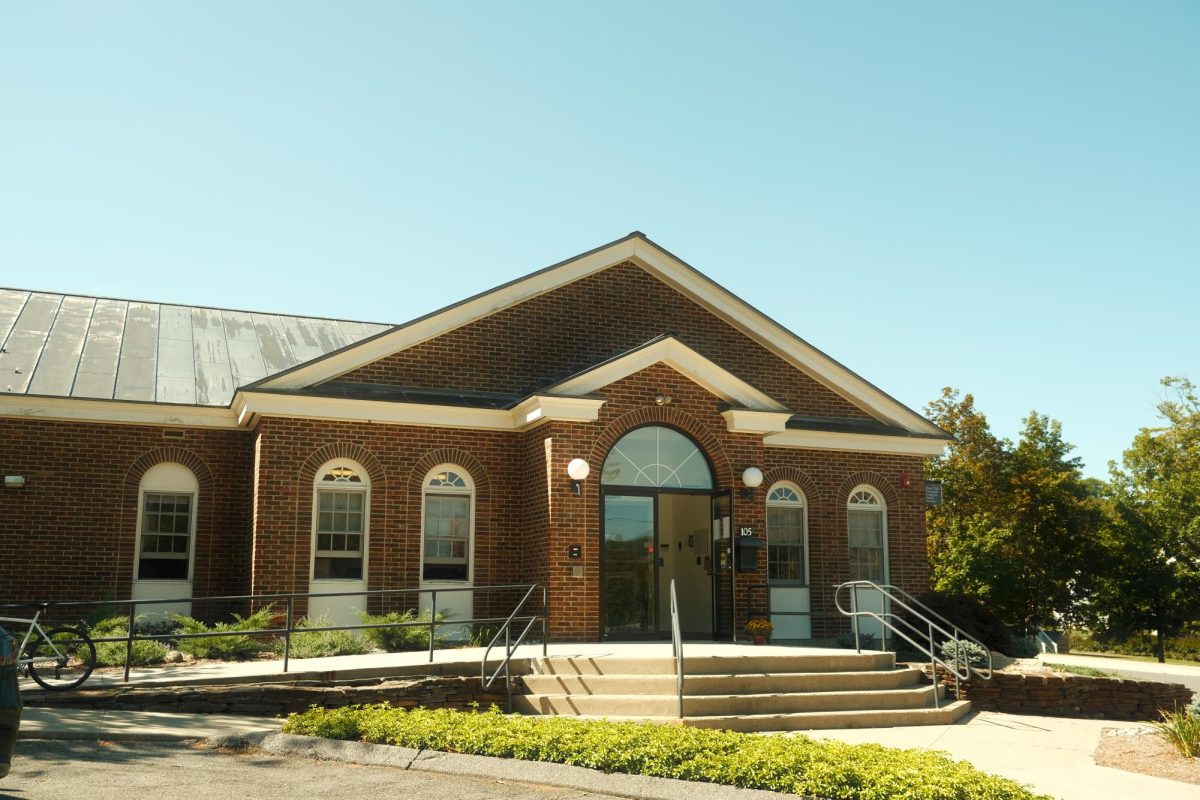Since its Oct. 25 Rally for Palestinian Life, Students for Justice in Palestine (SJP) has continued to organize in support of Palestine and call for a ceasefire in Gaza alongside student group Jews for Ceasefire.
“On campus, our one main goal is to ensure that visibility for what’s going on in Palestine remains consistent [and] sustained [so that] people don’t forget,” said an SJP member under the alias of Sawyer, who spoke to the Record anonymously out of concerns for their safety. “The Purple Valley bubble is something that was on our minds, and we want to keep piercing that.”
On Nov. 13, SJP plastered the glass walls of the front of Paresky Center with posters that read “11,000 PALESTINIANS KILLED.” Below the posters were sheets of paper printed with a fraction of the names of the now over 15,000 Palestinians (according to the Gaza Media Health Office) that have been killed by Israeli bombardment of the Gaza strip in retaliation against Hamas’s Oct. 7 breach of the Israel-Gaza border, in which the militant group killed approximately 1,200 people and took approximately 240 hostages.
These posters, along with several more posters that were put up on Nov. 20 — after the Nov. 13 posters were removed in what SJP condemned as an “attempt to silence and erase the humanity of people of Gaza” (it is unclear who took down the posters or for what reason) — were just one part of SJP’s organizing efforts. Other efforts include phone banking to demand that U.S. government officials call for a ceasefire, readings of resistance poetry and literature, and teach-ins to educate community members about the history of Israel-Palestine.
The College’s chapter of SJP was established in 2011, but the group dissolved at the end of the 2022–23 academic year when it failed to recruit a new board, according to Sawyer. Members of SJP saw its dissolution as emblematic of a larger failure of institutional memory at the College exacerbated by the COVID-19 pandemic.
“COVID has changed the ways in which students interact with the campus and each other,” said SJP member Amy Garcia ’24, who has been a student at the College since 2018. “I believe current students don’t even consider the option of [activism] because they didn’t firsthand witness it being done at Williams after 2019.”
Sawyer echoed this sentiment, stating that the pandemic contributed to a disruption in the transfer of institutional knowledge between students at the College, hampering student activism. “When we speak of that institutional loss of anything that disrupts what we consider the status quo at Williams, I think it’s largely a result of a lot of those mentorship channels between upperclassmen and underclassmen being disrupted or not being present because of COVID,” they said.
According to Sawyer, community work has thus been integral to SJP’s activism in order to build solidarity and preserve institutional memory at the College. Student reception to these public events, they said, demonstrates the importance of student activism that is open, honest, and welcoming.
“It’s not fair to assume that Williams College students want to maintain the bubble that they live in,” Sawyer said. “Many crave creating actual spaces of honest discourse, honest debate, honest engagement, and education on a lot of these issues — not just for Palestine, but for every issue that has been generalized or taboo-ized in American political discourse.”
Sawyer cited a Nov. 14 teach-in with Visiting Lecturer in American Studies Souhail Chichah, which had a turnout of around 80 people, as an example of the community’s desire for engagement. “That teach-in showed us that people will show up if you give them that space,” they said. “Williams students do want to engage with this.”
Part of “piercing the purple bubble,” as Sawyer put it, has included connecting with pro-Palestine organizers off campus, such as local groups in Berkshire County. This work has been especially meaningful to SJP member Kaon Suh ’26.
“We always talk about [how], ‘Oh, well, we’re in the middle of nowhere, we’re in the Berkshires — what can we really do?’” they said. “There is a very vibrant and beautiful community that I’ve been so fortunate to be able to be connected with, both in North County and South County, who are so committed and principled and [are] beautiful and admirable people who cannot accept [allowing] this genocide to continue to happen and are organizing to do whatever they can to stop it.”
The usage of the legal term “genocide” to describe the Israeli bombardment of Gaza has sparked controversy. No governmental body has alleged that Israel is committing genocide. United Nations Human Rights experts said in a Nov. 16 press release that “grave violations committed by Israel against Palestines in the aftermath of 7 October, particularly in Gaza, point to a genocide in the making.”
Jews for Ceasefire, a group of non-Zionist Jews at the College that first met on Oct. 29, has also organized events in support of Palestine, including a challah bake sale on Nov. 20 that raised approximately $640 for the Palestine Red Crescent Society.
The establishment of Jews for Ceasefire came out of a desire for a non-Zionist Jewish space to grieve the lives lost on and after Oct. 7, according to member Lea Elton ’24. “We thought it was really important to have a particularly Jewish space at that time, because both grieving the lives lost and hoping that our grief would not be weaponized is a difficult thing,” she said.
For Elton, creating Jews for Ceasefire as a non-Zionist Jewish space was important for both current and future students at the College. “Part of our existence is to literally say that Williams Jewish students aren’t a monolith,” she said.
“For Jewish students to look back in history … [and] see that there was this horrible occurrence of complete, imperialist abuse of power, and there were Jewish people who were frustrated by that and who didn’t want people to die — that’s how I’m approaching it,” she added. “There are going to be Jews on the record saying, ‘We don’t want you to mass-kill a bunch of people because of their nationality. You have a history of colonialism, and we don’t want to stand complicit with that.’”
As members of the group expressed interest in taking direct action, Jews for Ceasefire began to consider what organizing on campus would look like. According to Emma Nathanson ’25, that organizational work is oriented toward both the Jewish community and the wider College community.
“I think the internal work is really important … to have spaces to freely question the role of Israel in Judaism, along with many other facets of Judaism that are taken as accepted,” she said. “Because the war is happening now, that is the focus. We all at least agree that there should be a ceasefire, and so as long as that demand exists, then I think the work will be external.”
Having grown up attending a Reform Jewish summer camp, Nathanson said that she had never been able to critically examine the relationship between her Jewish identity and the state of Israel. Jews for Ceasefire has become a meaningful space for both action and introspection.
“Action has felt good, even if it’s tiny,” she said. “I think connecting activism and Judaism feels really powerful — braiding challah for the purpose of selling it is a really meaningful way to literally intertwine my Jewish identity with this Israel-questioning or a desire for peace.”
Beyond the direct activism that Jews for Ceasefire has undertaken, the group also plans to take action by supporting the organizing efforts of other community members, including SJP.
“We’re consistently pivoting around what is needed,” Elton said. “The existence of SJP is really pivotal here, and we’d like to not splinter the movement. There’s something powerful in having a particularly Jewish space calling for justice, but we are trying to maintain that balance.”
“Using our voices in partnership with SJP, particularly in the respect that we can’t be accused of antisemitism in the same way that they would be accused of antisemitism — that’s important,” she added.
Part of this support includes helping SJP organize a rally that will be held on Dec. 1 at 1:30 p.m. outside of Hopkins Hall. “Just because we’re moving into finals week does not mean that the cause has mellowed out by any means,” Sawyer said.
According to Sawyer, the rally will serve the dual purpose of engaging students who want to become more involved with the pro-Palestine movement and calling attention to a set of demands outlined in SJP’s Oct. 25 statement, which include transparency from the College about potential investments in weapons manufacturers tied to Israel, divestment if such investments exist, protection for members of the Williams community “who speak in support of Palestine,” and for the College to “end its silence and join the call for an immediate end to the genocidal siege in Gaza and all U.S. funding for Israel.”
Since its release, the statement has garnered 271 signatures, according to Suh. Though SJP hopes to receive a response from the College after sending the statement to President of the College Maud S. Mandel over the weekend, it has continued to organize in the meantime.
“For so many years, anybody who’s been pro-Palestine has been making concessions about how to be pro-Palestine,” Sawyer said. “Now that this genocidal campaign has been going on for the last 50 days, enough is enough.”
“Starting with establishing Palestinian visibility, then educational programming on that — we’re moving more and more towards direct action and letting the College know that we are here to stay,” they continued. “We will not be making concessions.”
[Editor’s Note: This article was updated online on Thursday, Nov. 30 at 11:16 a.m. ET to provide more context for the death toll in Gaza, the removal of the Nov. 13 posters, and the term “genocide.”]



